Filter by
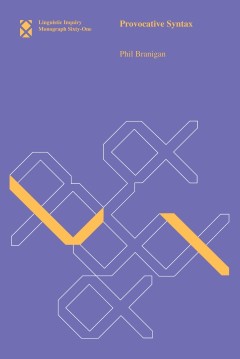
Provocative Syntax
After presenting the central proposal and showing its implementation in the analyses of familiar cases of syntactic movement, Branigan demonstrates the effects of provocation in a variety of inversion constructions, describes the details of chain formation and successive cyclic movement in a provocation model, and much more.OCLC-licensed vendor bibliographic record.
- Edition
- -
- ISBN/ISSN
- 9780262295673
- Collation
- 1 online resource (x, 176 pages) :illustrations.
- Series Title
- -
- Call Number
- -
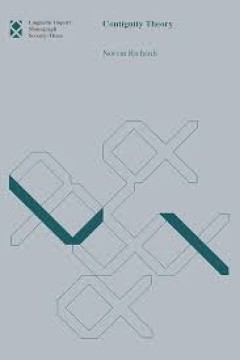
Contiguity theory
Norvin Richards argues that there are universal conditions on morphology and phonology, particularly in how the prosodic structures of language can be built, and that these universal structures interact with language-specific properties of phonology and morphology.OCLC-licensed vendor bibliographic record.
- Edition
- -
- ISBN/ISSN
- 9780262332330
- Collation
- 1 online resource.
- Series Title
- -
- Call Number
- -
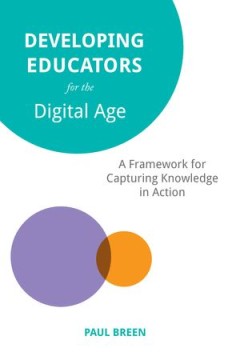
Developing Educators for the Digital Age : a Framework for Capturing Knowledg…
Evaluating skills and knowledge capture lies at the cutting edge of contemporary higher education where there is a drive towards increasing evaluation of classroom performance and use of digital technologies in pedagogy. Developing Educators for the Digital Age is a book that provides a narrative account of teacher development geared towards the further usage of technologies (including iPads, M…
- Edition
- -
- ISBN/ISSN
- 9781911534686
- Collation
- -
- Series Title
- -
- Call Number
- 370 BRE d
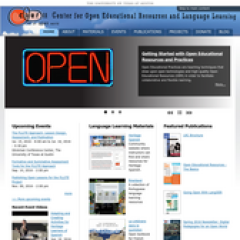
Center for Open Educational Resources and Language Learning (COERLL)
COERLL produces online language learning materials (for example language courses, reference grammars, assessment tools, and corpora) for teachers to adopt, adapt, modify, and share, and also provides professional development tools for teachers. You can browse materials on the COERLL website.
- Edition
- -
- ISBN/ISSN
- -
- Collation
- -
- Series Title
- -
- Call Number
- -
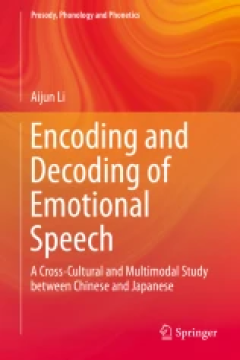
Encoding and Decoding of Emotional Speech A Cross-Cultural and Multimodal St…
This book addresses the subject of emotional speech, especially its encoding and decoding process during interactive communication, based on an improved version of Brunswik’s Lens Model. The process is shown to be influenced by the speaker’s and the listener’s linguistic and cultural backgrounds, as well as by the transmission channels used. Through both psycholinguistic and phonetic a…
- Edition
- -
- ISBN/ISSN
- 978-3-662-47691-8
- Collation
- 36 b/w illustrations, 61 illustrations in colour
- Series Title
- -
- Call Number
- -
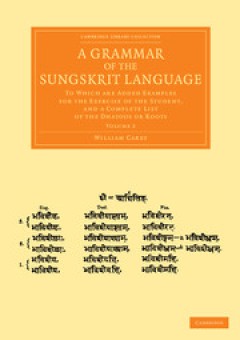
A Grammar of the Sungskrit Language to Which Are Added Examples for the Exer…
The Indo-Aryan language of Sanskrit is the primary language of Hinduism and also a scholarly language of Buddhism. Dating back to the second millennium BCE, it is considered to be the parent of most modern languages of India, and remains central to work in Indo-European studies, philology and linguistics today. First published in 1806, this is a comprehensive grammar of Sanskrit, compiled by th…
- Edition
- -
- ISBN/ISSN
- 9781139507271
- Collation
- -
- Series Title
- Cambridge Library Collection - Perspectives from the Royal Asiatic Society
- Call Number
- -

Cicero, On Pompey’s Command (De Imperio), 27-49 : Latin Text, Study Aids wi…
Overview: In republican times, one of Rome's deadliest enemies was King Mithridates of Pontus. In 66 BCE, after decades of inconclusive struggle, the tribune Manilius proposed a bill that would give supreme command in the war against Mithridates to Pompey the Great, who had just swept the Mediterranean clean of another menace: the pirates. While powerful aristocrats objected to the proposal, wh…
- Edition
- -
- ISBN/ISSN
- 978-1-78374-079-6
- Collation
- -
- Series Title
- -
- Call Number
- 800 GIL c
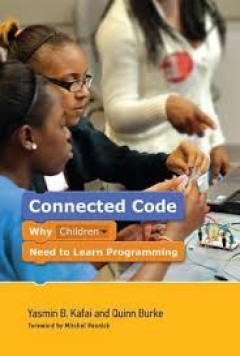
Connected Code: Why Children Need to Learn Programming
Why every child needs to learn to code: the shift from "computational thinking" to computational participation.OCLC-licensed vendor bibliographic record.
- Edition
- -
- ISBN/ISSN
- 0262319241
- Collation
- 1 online resource.
- Series Title
- -
- Call Number
- -
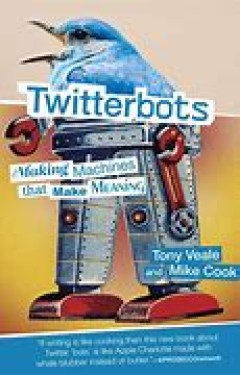
Twitterbots: Making Machines that Make Meaning
The world of Twitterbots, from botdom's greatest hits to bot construction to the place of the bot in the social media universe.OCLC-licensed vendor bibliographic record.
- Edition
- -
- ISBN/ISSN
- 9780262346436
- Collation
- 1 online resource (352 pages) :illustrations
- Series Title
- -
- Call Number
- -

The price of linguistic productivity :how children learn to break the rules o…
An investigation of how children balance rules and exceptions when they learn languages."All languages have exceptions alongside overarching rules and regularities. How does a young child tease them apart within just a few years of language acquisition? In this book, drawing an economic analogy, Charles Yang argues that just as the price of goods is determined by the balance between supply and …
- Edition
- -
- ISBN/ISSN
- 9780262336376
- Collation
- 1 online resource
- Series Title
- -
- Call Number
- -
 Computer Science, Information & General Works
Computer Science, Information & General Works  Philosophy & Psychology
Philosophy & Psychology  Religion
Religion  Social Sciences
Social Sciences  Language
Language  Pure Science
Pure Science  Applied Sciences
Applied Sciences  Art & Recreation
Art & Recreation  Literature
Literature  History & Geography
History & Geography